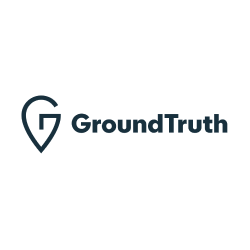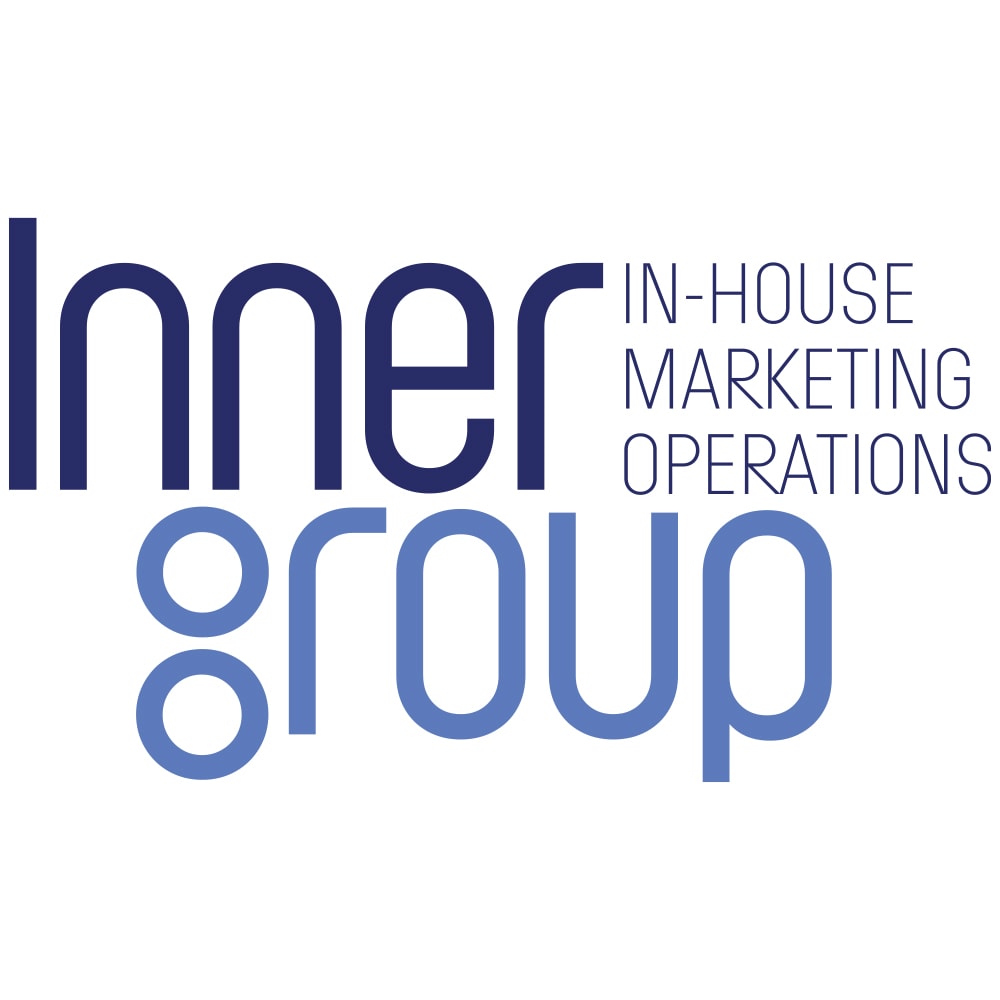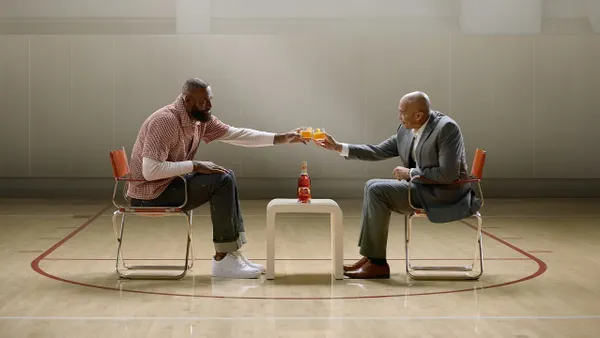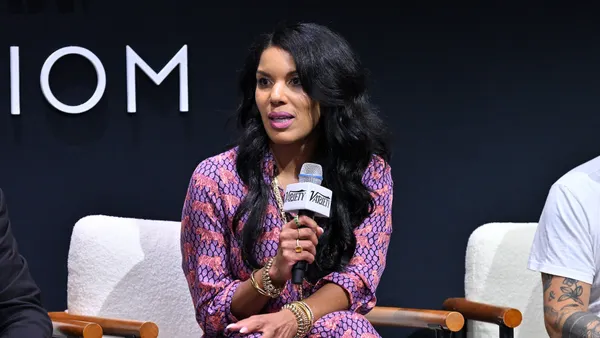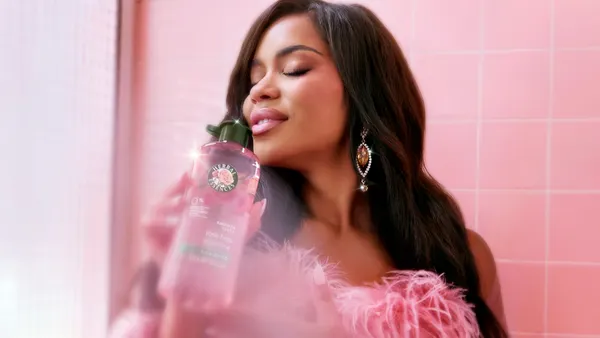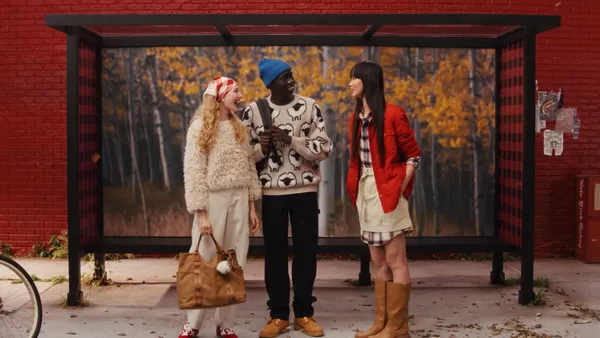Dive Brief:
- AB InBev used part of its relatively big ad spend during this year's Super Bowl to tout the fact that Bud Light doesn't use corn syrup. The spot showed a medieval-era group pulling a gigantic barrel labeled "CORN SYRUP" to castles representing rival brands Miller and Coors, where it's finally accepted by the latter.
- Besides drawing attention to its own brand's lack of corn syrup and slamming Miller Lite and Coors Light for using it, AB InBev attracted pushback from the corn industry, which felt the brewing giant was trying to call out corn syrup as an undesirable ingredient. The National Corn Growers Association (NCGA) said in a tweet it was "disappointed" in AB InBev for the Super Bowl spot, and the group threw some appreciative words at Miller and Coors.
- In response, MillerCoors purchased a full-page advertisement in The New York Times to slam Bud Light and highlight that its beer is made with corn syrup. "We’d like to thank our competitors for taking the time and money to point out this exciting fact to such a large, national audience not once, but twice," the ad reads.
Dive Insight:
No doubt AB InBev thought the ad would be a creative way of focusing on Bud Light's lack of corn syrup as a marketing advantage — and it probably is in some circles. But it certainly wasn't a welcome message to the nation's corn growers, who took great exception to what they considered an unfair slur upon their product.
Kevin Ross, a NCGA vice president, tweeted out a video showing him pouring Bud Light down the sink and including these words: "Bud Light, if you’re not standing with corn farmers, we’re not standing with you." The world's largest brewer then found itself defending the ad and having to clarify its purpose.
The company also indirectly apologized to the corn industry in a statement sent to CNBC:
"Last year, Anheuser-Busch purchased more than 1 billion pounds of corn ingredients," the statement said. "We fully support corn growers and will continue to invest in the corn industry. Bud Light's Super Bowl commercials are only meant to point out a key difference in Bud Light from some other light beers. This effort is to provide consumers transparency and elevate the beer category."
Chances are AB InBev wanted to emphasize that Bud Light only contains four ingredients — water, barley, rice and hops — which the company recently started prominently displaying on each can, along with the calories and carbs per serving. That's a smart marketing approach since many consumers are looking for transparency in foods and beverages, and they might be more willing to give Bud Light their business if they knew it doesn't use corn syrup — undoubtedly the company's goal with the Super Bowl ad.
But AB InBev may be living in a glass house — a point its competitors were happy to point out. MillerCoors hit back with a tweet that it's proud of its beers. "We're also proud that none of our products include any high fructose corn syrup, while a number of Anheuser-Busch products do. And Miller Lite has fewer calories, fewer carbs and more taste than Bud Light," the company tweeted. Then MillerCoors took it a step further by placing The New York Times ad. Its CEO also issued a strong statement.
"Bud Light is starting this fight for one simple reason. They are scared. Coors Light and Miller Lite are making inroads and Bud Light doesn't have an answer. We’re getting under the competition’s skin, and we’re ready to take more of their market share too," MillerCoors CEO Gavin Hattersley said in Behind Beer, a blog owned by the company.
The controversy has fanned a longstanding debate over whether corn syrup is healthy. According to The New York Times, it doesn't matter if corn syrup is used during fermentation because yeast converts whatever type of sugar is used into alcohol. Consequently, it's more important to know the alcohol content and final carb content, the newspaper said. Still, the connection between corn syrup and obesity has helped drive down its use in the past few years, and some manufacturers — including PepsiCo and Kraft Heinz — have switched back to using regular sugar.
While this probably wasn't the kind of attention AB InBev was hoping to attract for its Bud Light brand, the dispute around the Super Bowl ad could end up being a positive if it prompts more consumers to buy American beer. The industry has been in a serious slump, with total U.S. volume dropping for five years straight. AB InBev posted a 0.5% third-quarter revenue drop in its U.S. market, with Bud Light and Budweiser both losing market share. The company said it would cut its dividend in half in order to improve its financial situation.
Sometimes any publicity is better than none, so as long as consumers remember the name and some of them reach more often for Bud Light, the company may come out of this advertising misstep a little wiser but none the worse for wear. As usual, only time will tell.







